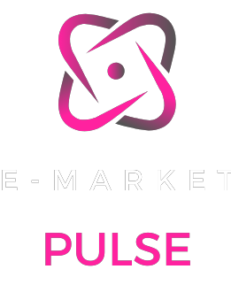

Choosing the Right E-Commerce Platform: A Comprehensive Guide
Introduction
In today’s digital age, launching an e-commerce business has become more accessible than ever before. However, one of the most crucial decisions you’ll make is choosing the right e-commerce platform to host your online store. With numerous options available, selecting the platform that aligns with your business needs can be a daunting task. This comprehensive guide aims to simplify the process by comparing some of the most popular e-commerce platforms – eBay, Amazon, Etsy, and Facebook – and discussing their respective pros and cons.
Why Choosing the Right E-Commerce Platform Matters
Your choice of e-commerce platform is akin to selecting the foundation of your online business. It will affect your store’s appearance, functionality, ease of use, and the overall shopping experience you can offer to your customers. Therefore, before diving into the detailed comparisons, let’s understand why this decision is so crucial.
GET EXCLUSIVE ACCESS TO OUR EXPERTS THIRD PARTY PLATFORM SELLERS' TIPS AND ADVICE:
- Get AHEAD of the Competition.
- FREE Membership to Sarah’s Weekly Insiders secrets.
- FREE tailored resources and gifts.
- PLUS qualify to receive personal email support.

* We respect your privacy. We will not spam you.
1. eBay: The Online Marketplace
Pros:
**Built-in Customer Base:** eBay boasts a massive, established customer base. As a seller, you can tap into this extensive network without having to invest heavily in marketing.
**Auction Format:** eBay allows sellers to list products for auction, which can sometimes lead to competitive bidding and higher prices.
**Seller Tools:** eBay provides various seller tools, including an easy-to-use interface and resources for optimizing listings.
Cons:
**High Fees:** eBay charges various fees for listing items and a percentage of the final sale price, which can eat into your profits.
**Limited Branding:** While you can establish your store’s branding to some extent, eBay’s marketplace format limits your ability to create a unique online store.
**Best Suited For:** eBay is an excellent choice for individuals or small businesses looking to start selling quickly without building a dedicated e-commerce website.
2. Amazon: The E-Commerce Giant
Pros:
**Vast Customer Base:** Amazon has millions of active customers worldwide, offering access to a broad market.
**Fulfillment Services:** Amazon offers Fulfillment by Amazon (FBA) services, allowing them to handle shipping, customer service, and returns.
**Prime Membership:** Sellers can benefit from Amazon Prime’s two-day shipping, attracting more customers.
Cons:
**High Competition:** With its vast marketplace, competition is intense. It can be challenging to stand out among other sellers.
**Strict Rules:** Amazon has strict seller policies and performance metrics. Violating these rules can result in account suspension.
**Best Suited For:** Amazon is suitable for businesses of all sizes, but it’s particularly beneficial for those with a high sales volume and the capability to fulfill orders efficiently.
3. Etsy: The Artisan’s Haven
Pros:
**Niche Marketplace:** Etsy is renowned for handmade, unique, and vintage products. It attracts customers looking for one-of-a-kind items.
**Seller-Friendly:** Etsy offers a user-friendly interface and tools tailored to artisanal businesses.
**Community and Support:** Sellers can tap into the Etsy community and receive support from like-minded entrepreneurs.
Cons:
**Niche Limitations:** While Etsy’s niche focus is an advantage, it can also be a limitation, as it may not cater to a broad range of products.
**Transaction Fees:** Etsy charges transaction fees for sales, and additional fees may apply for payment processing and listing items.
**Best Suited For:** Etsy is perfect for artisans, crafters, and small businesses specializing in unique, handmade, or vintage products.
4. Facebook: The Social Commerce Platform
Pros:
**Social Integration:** Facebook allows you to sell directly through your social media page, offering a seamless shopping experience for your followers.
**Low Transaction Fees:** Facebook charges relatively low transaction fees compared to other platforms.
**Targeted Advertising:** You can use Facebook’s robust advertising tools to reach specific customer demographics.
Cons:
**Limited Features:** While Facebook offers a straightforward selling experience, it may lack some advanced e-commerce features available on dedicated platforms.
**Limited Market:** Your potential customer base is limited to your Facebook audience, which may require significant marketing efforts to expand.
**Best Suited For:** Facebook is an excellent choice for businesses aiming to sell directly through social media and engage with their followers.
Choosing the Right Platform for Your Business
The choice of e-commerce platform should align with your business goals, target audience, product offerings, and the level of control you desire. Here are some key factors to consider when making your decision:
- Business Type: Are you a small artisan, a large retailer, or an individual seller? Your business type will influence your choice.
- Product Range: Consider the nature of your products. Are they handmade, vintage, mass-produced, or unique? Some platforms cater better to specific product types.
- Budget: Assess the fees and costs associated with each platform, including listing fees, transaction fees, and payment processing fees.
- Control: Evaluate how much control you want over your store’s branding, design, and functionality.
- Customer Base: Consider the customer base of each platform and whether it aligns with your target audience.
- Competition: Research the level of competition on each platform and assess your ability to stand out.
- Marketing and Growth: Think about the marketing tools and features each platform offers for business growth.
Conclusion
Choosing the right e-commerce platform is a crucial step in building a successful online business. By comparing popular platforms like eBay, Amazon, Etsy, and Facebook, you can make an informed decision that aligns with your business needs. Each platform has its unique advantages and limitations, making it essential to consider your specific requirements and objectives when making a choice. Whether you’re looking to start a small online store or scale a thriving e-commerce empire, the right platform is the foundation of your success.
MORE LIKE THIS...
Bringing you the latest information, ideas, products and services for your E-commerce business.
Copyright 2024 E-Market Pulse
Contact Us
We may receive compensation from partners listed through affiliate partnerships, at no cost to you. This doesn’t influence our ratings, and the opinions are our own
Subscribe to our Newsletter
Get updates on products and services specially targeted to help you succeed.
